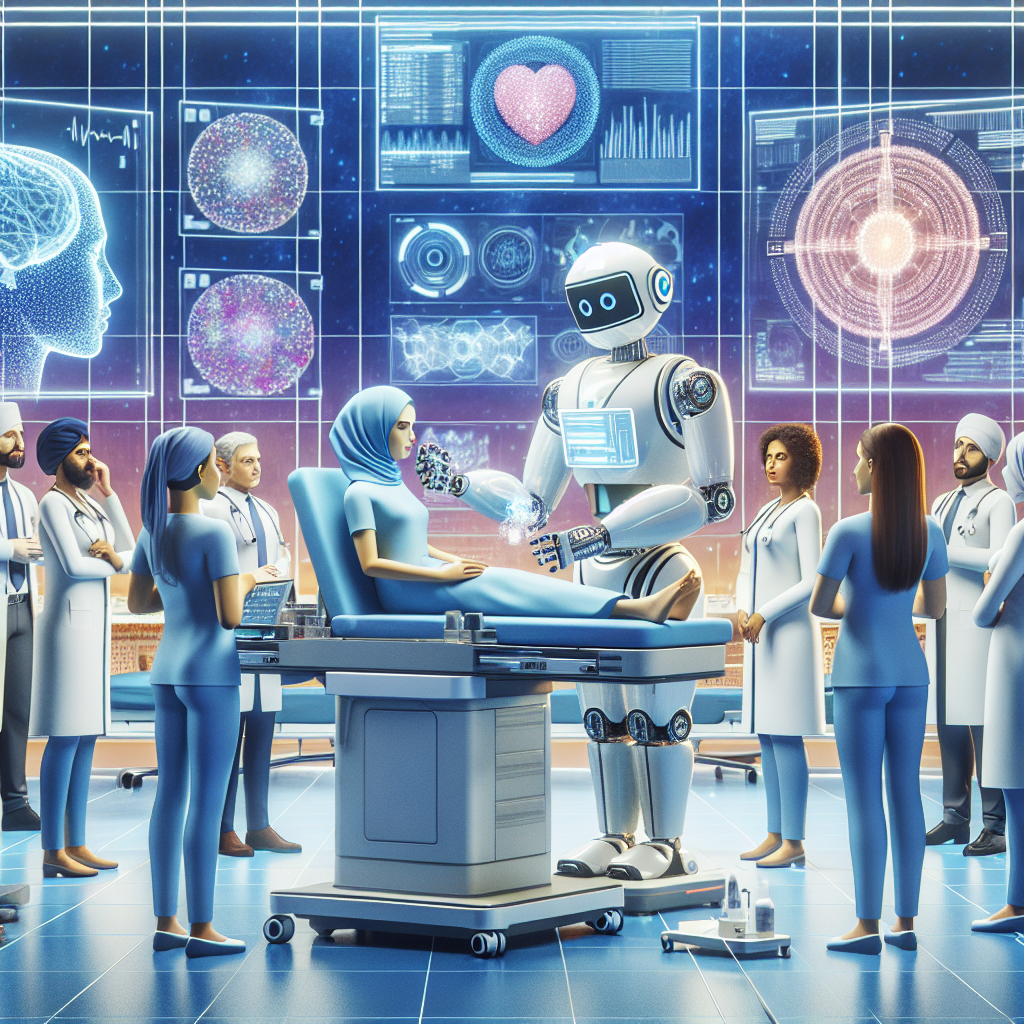Revolutionizing Healthcare: How AI is Transforming Diagnostic Processes
In recent years, the healthcare industry has been rapidly evolving with the integration of artificial intelligence (AI) technologies. One of the most significant areas where AI is making a profound impact is in the field of diagnostics. AI has the potential to revolutionize the way healthcare providers diagnose medical conditions, leading to more accurate and timely diagnoses, ultimately improving patient outcomes. In this article, we will explore how AI is transforming diagnostic processes in healthcare and the various benefits it brings to the table.
AI in Diagnostic Imaging
One area where AI is making a significant impact in healthcare diagnostics is in the field of diagnostic imaging. Medical imaging techniques like X-rays, CT scans, and MRI scans generate vast amounts of data that can be challenging for healthcare providers to interpret accurately. AI technologies can help address this challenge by analyzing medical images and identifying patterns or anomalies that human clinicians may overlook.
AI-powered diagnostic imaging tools can assist radiologists in detecting early signs of diseases like cancer, heart disease, or strokes. These tools can analyze images faster than human clinicians, leading to quicker diagnoses and treatment decisions. Additionally, AI can help reduce errors and improve the accuracy of diagnoses, ultimately leading to improved patient outcomes.
AI in Laboratory Diagnostics
Another area where AI is transforming diagnostic processes in healthcare is in laboratory diagnostics. Traditional laboratory tests like blood tests or urine tests generate a wealth of data that can be overwhelming for healthcare providers to analyze. AI technologies can help streamline this process by analyzing large datasets and identifying patterns that indicate potential health issues.
AI-powered diagnostic tools can assist in the early detection of diseases like diabetes, kidney disease, or infections. These tools can also help predict patient outcomes and guide treatment decisions based on the data collected from laboratory tests. By leveraging AI in laboratory diagnostics, healthcare providers can improve the efficiency of diagnostic processes and provide more personalized care to their patients.
Benefits of AI in Diagnostic Processes
There are several key benefits to integrating AI into diagnostic processes in healthcare. Some of the most notable advantages include:
1. Improved Accuracy: AI technologies can analyze vast amounts of data quickly and accurately, leading to more precise diagnoses and treatment decisions.
2. Faster Diagnoses: By automating the analysis of medical images and laboratory tests, AI can help healthcare providers diagnose medical conditions more quickly, leading to timely treatment interventions.
3. Enhanced Patient Outcomes: Improved accuracy and faster diagnoses can lead to better patient outcomes, as healthcare providers can identify and treat medical conditions more effectively.
4. Reduced Costs: By streamlining diagnostic processes and improving efficiency, AI can help reduce healthcare costs and improve resource allocation.
5. Personalized Medicine: AI technologies can analyze patient data and provide personalized treatment recommendations based on individual patient characteristics, leading to more tailored and effective treatment plans.
FAQs
Q: Are AI-powered diagnostic tools replacing human clinicians in healthcare?
A: AI technologies are designed to assist healthcare providers in diagnostic processes, not replace them. While AI can help streamline and improve diagnostic processes, human clinicians are still essential for making treatment decisions and providing personalized care to patients.
Q: Is AI in healthcare safe and secure?
A: Healthcare organizations must adhere to strict data privacy and security regulations when implementing AI technologies in diagnostic processes. By following robust security protocols and encryption measures, healthcare providers can ensure the safety and security of patient data.
Q: How can healthcare providers leverage AI in diagnostic processes?
A: Healthcare providers can integrate AI-powered diagnostic tools into their existing workflows to improve the efficiency and accuracy of diagnostic processes. By partnering with AI technology vendors and investing in training for healthcare staff, providers can maximize the benefits of AI in healthcare diagnostics.
In conclusion, AI is revolutionizing healthcare diagnostics by improving accuracy, speed, and efficiency in the diagnostic processes. By leveraging AI technologies in diagnostic imaging and laboratory diagnostics, healthcare providers can enhance patient outcomes, reduce costs, and provide personalized care to their patients. As AI continues to evolve and mature, its role in healthcare diagnostics is expected to expand, leading to the development of more innovative and effective diagnostic tools.
